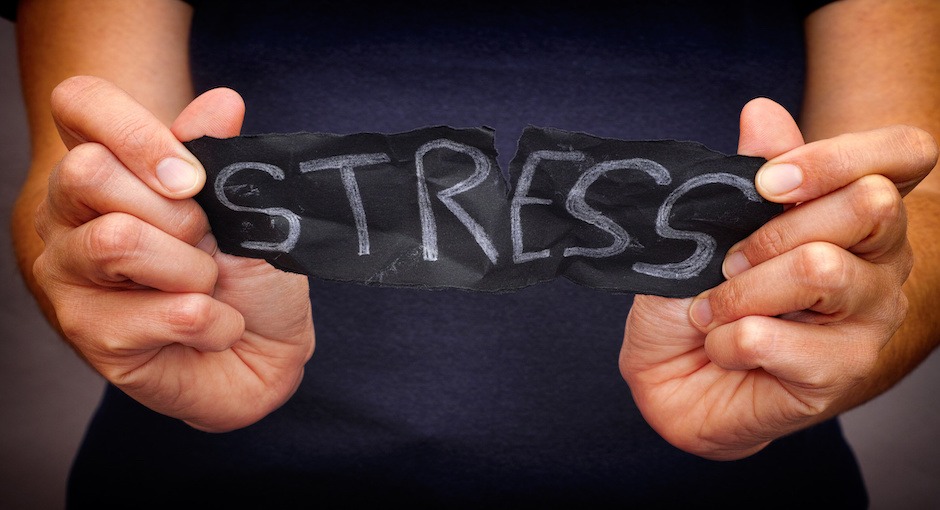One of my patients just got back from an African safari which was a “bucket list” trip of a lifetime. While she was there, she had the amazing (and somewhat horrifying) experience of watching a lion chase and take down a zebra. She even showed me the gory photos. Can you imagine what was going on inside that zebra in the moments before the kill? First…run. Then…fight. That’s why we call it a “fight or flight” reaction! Whether the zebra gets away or not, the whole ordeal ends really quickly. And that’s what’s supposed to happen in a fight or flight reaction. A quick burst of stress…and then, hopefully back to the herd. Sadly, for many of us, it feels like there is a lion nipping at our heels for days, weeks, months, even years. Our fight or flight reaction never gets a break. This article will help you better understand chronic stress and give you some useful tips on how to escape it.
-JL
Many people spend much of their time in the fast lane on overdrive – a lifestyle that breeds stress like a vicious infection. A startling statistic tells us that 90% of visits to primary care physicians are for stress-related conditions.
Not getting a handle on stress in your life can lead to physical problems including:
- Low energy
- Headaches
- Gastrointestinal problems
- Aches and pains
- Chest pain
- Insomnia
- Colds and infections
- Reduced sex drive
- Clenched jaw and teeth grinding
- Elevated blood pressure
In addition to physical problems, stress can cause a whole host of cognitive and behavioral issues such as:
- Constant worrying
- Lack of focus
- Racing thoughts
- Poor judgment
- Negative or pessimistic thinking
- Forgetfulness
- Disorganization
- Nail biting, fidgeting, and pacing
- Procrastination
- Changes in appetite
One of the first steps to getting a handle on stress is to acknowledge it in your life. Not all symptoms will be easily identifiable, but if any you are dealing with any of the above-described things, there is a good chance that you might be overloaded.
The human body is an incredible machine, capable of handling some degree of pressure and stress. However, if this stress becomes chronic and longterm, the effects are cumulative and can result in very serious conditions and disease.
The Good News
Here are 10 proven stress solutions to help you get a handle on the stress in your life so that you can be as healthy as possible:
Eat right: A diet that is loaded with processed and junk food does not support a healthy immune system which is necessary to handle stress properly. Eat a diet that is loaded with whole foods including plenty of leafy greens, whole grains, healthy fat, and protein.
Move more: There is nothing better to bust stress than being regularly active. Even the simple act of walking more can improve stress resistance and help the body and mind relax.
Get outside: A lack of vitamin D can contribute to a poor stress response. Get your fill of sunshine and fresh air by spending time outdoors daily. Even a walk in the rain can be refreshing and relaxing from time to time.
Journal: There is something very cathartic about keeping a journal. Sharing your thoughts, fears, hopes, and dreams with your journal helps to get the chatter out of your head and free up space to think clearly and let down a bit.
Listen to music: Music can be incredibly soothing and is a verifiable way to reduce anxiety and stress. After a long and stressful day, listen to some soothing music and send your stress packing.
Use adaptogenic herbs: Adaptogenic herbs have a balancing impact on bodily systems. Although the impact of an adaptogenic herb can be felt immediately, some are cumulative and take time before the impact is felt. Here are three very powerful adaptogenic herbs that have been found to reduce stress in the body.
Ashwagandha – Research supports the use of ashwagandha to reduce stress and anxiety as well as the stress hormone cortisol. Ashwagandha can be taken in capsule, tea or powdered form.
Holy basil – This herb is also known as Tulsi, has shown great results in studies to reduce stress symptoms including stress in people with generalized anxiety disorder. Drink holy basil in tea, use it in cooking, take as a tablet or capsule, or consume in powdered form.
Lemon Balm – Studies show that lemon balm can act quickly on stress while improving alertness. In addition, research indicates that this adaptogenic herb can help reduce anxiety and insomnia. Lemon balm increases GABA activity in the brain. GABA is a neurotransmitter that prevents over- excitement and helps keep stress levels low while promoting healthy sleep. Lemon balm can be incorporated into cooking and baking, sipped as a soothing tea or infused in water.
More Ways to Reduce Stress in Your Life
- Unplug – Taking a break from your electronics can help you to relax and let down. Try unplugging at least a few hours each day and especially before bedtime.
- Give back – When we give back to others, it produces endorphins that make us feel better and reduce stress.
- Aromatherapy – Run a diffuser with stress reducing oils such as lavender, vanilla, sandalwood, and rose.
- Laugh – If you are having a particularly stressful day, pull up some funny videos or hang out with someone who makes you laugh.
-The UpWellness Team









